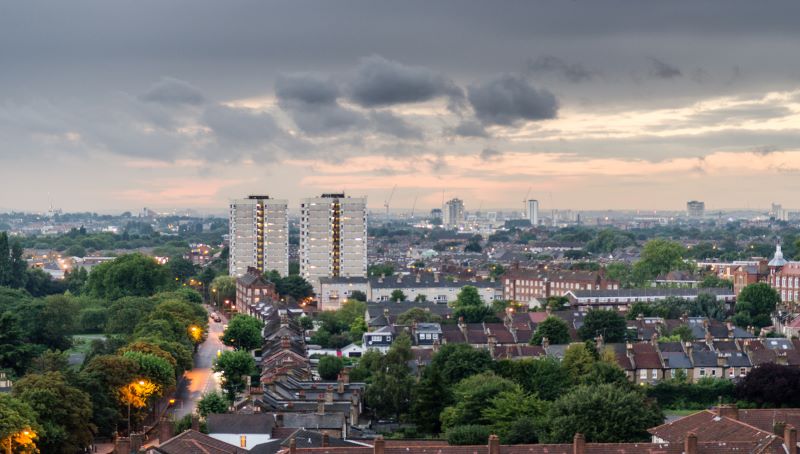
An overhaul of how social housing is allocated, which the government claims will make the system fairer and not available to those who abuse it, has been announced today.
Much-trailed ‘three strikes and you’re out’ measures for repeat anti-social offenders and a new policy to prioritise households who have a close connection to the UK and their local area, are part of a new consultation launched by the Department for Levelling Up, Housing and Communities.
Housing Minister Lee Rowley said: “Today we are proposing further steps to make the allocation of social housing fairer for people. If you abuse the system, making peoples’ lives a misery or actively work against our British values, you are making a choice – such choices will have consequences and our proposals seek to stop such people getting a social home.
“The message is clear: play by the rules, pay in and we will support you. If you choose not to, this country is not going to be a soft touch.
“The public want to know decent and hardworking people that have contributed to this country will be prioritised for new social tenancies. People already living in social homes want to know that anyone moving near them will be respectful of their neighbours with their communities protected from those who persistently break the law.
“That is why it is right that the finite resource of social housing is allocated fairly and local law-abiding citizens in need have more access to a home in their own communities.”
The government is seeking views from the public, councils, social housing tenants and providers and wants to bring forward the reforms as soon as possible.
The reforms include new UK and local connection tests to determine social housing eligibility, with applicants required to demonstrate a connection to the UK for at least 10 years and their local area for at least two years.
Prospective tenants on higher incomes could also no longer qualify for social housing, although existing tenants will not be affected.
As part of the reforms, people who have unspent convictions for certain criminal anti-social behaviour or have been subject to certain civil sanctions could be disqualified from social housing for up to five years.
This sits alongside measures which could disqualify terrorist offenders from benefiting from social housing.
The government says the changes will be delivered by secondary legislation at the earliest opportunity.
The proposals build on the reforms already introduced by the government to improve the quality and quantity of the country’s social housing stock. This includes the Social Housing (Regulation) Act 2023, under which the powers of the Regulator of Social Housing to hold poorly performing landlords to account have been strengthened and social housing residents’ access to redress has been improved due to new powers for the Housing Ombudsman.
Access to most social housing is managed by local housing authorities, who only allocate homes to people who are eligible and who qualify.
The government says the proposed new national requirements will aim to provide greater consistency for social housing applicants and local housing authorities, ultimately providing a fairer overall service.
The policy proposals set out in the consultation, which runs until 26 March, apply to the social rented sector in England and will inform changes to secondary legislation regarding eligibility and qualification criteria under Part 6 of the Housing Act 1996.
The income test will set out a maximum household income threshold, which if exceeded, would mean households would not qualify for social housing. This will only apply to applicants and have no impact on existing tenants.





